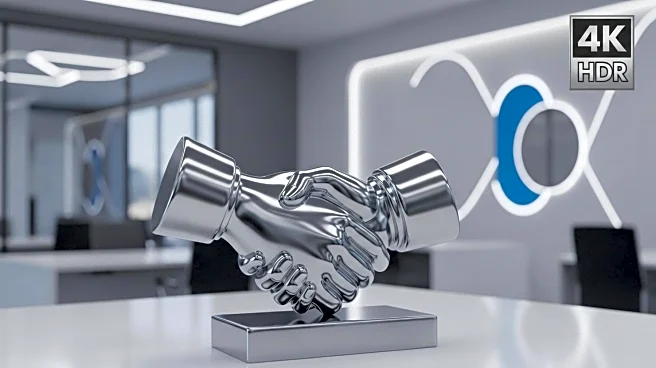What's Happening?
Elon Musk and X, formerly known as Twitter, have reached a settlement with a group of former executives over a severance dispute. The executives, including Parag Agrawal, Ned Segal, Vijaya Gadde, and Sean Edgett, claimed that Musk withheld $128 million in severance payments after acquiring Twitter in 2022. The lawsuit, filed in 2024, alleged that Musk's actions were retaliatory, following his forced completion of the $44 billion acquisition deal. The executives were dismissed shortly after Musk took control, just before they were due to receive $200 million in severance and vested stock options. A court order from the US Northern District Court of California confirmed the settlement but did not disclose its terms. The order also postponed depositions, including Musk's, to allow the parties to fulfill settlement conditions.
Why It's Important?
The settlement is significant as it resolves a high-profile legal dispute involving one of the world's most influential tech figures, Elon Musk. The case highlights the complexities and potential conflicts in major corporate acquisitions, particularly regarding executive compensation. The resolution may impact how future severance agreements are structured in large-scale mergers and acquisitions. It also underscores the legal challenges that can arise when leadership changes occur abruptly in major companies. The outcome could influence corporate governance practices and executive contract negotiations in the tech industry.
What's Next?
While the settlement terms remain undisclosed, the resolution of this dispute may lead to changes in how severance agreements are handled in future acquisitions. Stakeholders in the tech industry may closely monitor the implications for executive compensation and contract enforcement. Additionally, the settlement could prompt further scrutiny of Musk's business practices and decision-making processes. The case may also influence ongoing and future legal actions involving Musk and X, as similar disputes have arisen with other former employees.
Beyond the Headlines
The settlement may have broader implications for corporate ethics and leadership accountability. It raises questions about the balance of power between executives and company owners, especially in high-stakes acquisitions. The case also highlights the potential for personal vendettas to influence business decisions, as alleged by the former executives. This development could lead to increased calls for transparency and fairness in executive dismissals and compensation practices.










